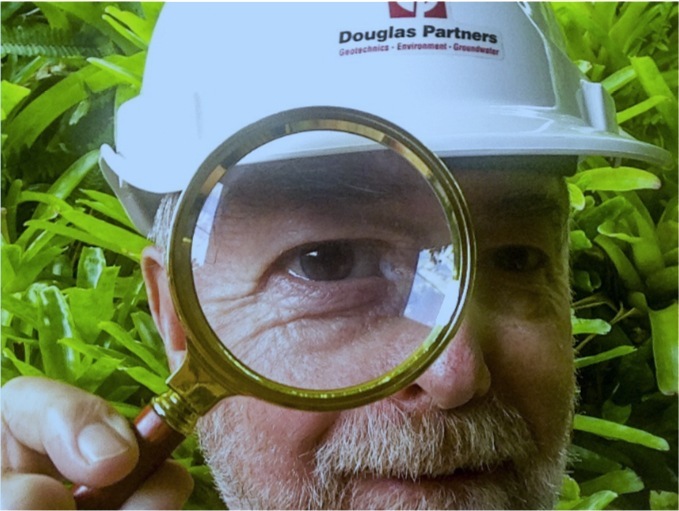Opinions Vary, and That's a Fact

What is the truth and can we handle it?
We live in a world where knowledge/data/news is now so relatively easy to access that information overload can form an impediment in even a simple search for additional clarification. How often does it become obvious that our search for credible knowledge is being tainted by the agendas, propaganda and spin of various self propagating authorities, agencies, organisations or governments? Indeed, information overload has become so easy to achieve that it even has its own manufactured slang (eg infobesity, infoxication, analysis paralysis). Such excessive amounts of information, particularly when found to be obviously conflicting (possibly manipulated?), can, to the uninitiated recipient, lead to:
- at best, a self imposed road block against further research ("it's all too difficult!"); or
- at worst, internal conflict, strife and discord (cognitive dissonance).
But it's not that hard, once we become aware of some simple guidelines, to separate out the wheat from the chaff, the sheep from the goats, the truth from the false truths.

First by way of some background, I've spent several decades providing advice (via written reports) to various clients as a consultant, with an occasional role as an 'expert witness' in the odd legal dispute. This has permitted me to conclude, through personal experience and through the ethical guidelines of my own particular specialty area of engineering, that information can be parcelled into three major forms as follows:
- Factual;
- Interpretation; and
- Opinion.
Factual
- "The sky is red tonight" ... this can be verified by looking out the window.
- "It's raining" ... again look out the window.
- "Touch a hot iron for too long and you'll get burnt" ... either we can lean on our experience to confirm that this is true, or we can easily test the statement for ourselves.
- "It cost me $25 to get a cinema ticket this week" ... verifiable by looking at a receipt or at the published on-line cinema prices.
- "Koalas eat eucalyptus leaves" ... check out your local wildlife park or zoo.
- "World War 1 was between 1914 and 1918" ... well documented in historical records.
- "The temperature inside the living room is 25 degrees Celsius" ... all you need is a thermometer.

Interpretation
- Prescribed - where the interpretation process follows a well established set of guidelines, or scientifically documented procedure; or
- Ad Hoc - where logic is used to interpret the available data without necessarily following any previously documented formulae or procedures.
A prescriptive approach may be used when categorising data into certain behavioural groups. As an example, soil mechanics (one of my pet subjects related to my engineering background) has found that the plasticity of clay soils is dependent upon moisture content. Experience with various clay soils, when being worked/moulded, defines the plastic range as between the plastic limit (lower bound moisture content below which the soil becomes brittle) and the liquid limit (upper limit moisture content above which the soil becomes liquid). As these limits will vary for different clay soils, the soil plasticities are defined here in Australia, for convenience and standardisation, as follows:
- Low Plasticity - when the liquid limit of the sample tested is at a moisture content of less than 35%
- Medium Plasticity - when the liquid limit is between 35% and 50%
- High Plasticity - when the liquid limit is greater than 50%

Opinion


An opinion is a judgement based on the facts, but, as can be seen from the foregoing, opinions may change dependent upon how the facts are presented and interpreted.
- Are the facts reliable?
- Are the interpretations derived from a valid set of facts?
- Are the opinions based on the facts?

http://ken-boddie.squarespace.com
The author of the above, Ken Boddie, besides being a sometime poet and occasional writer, is an enthusiastic photographer, rarely leisure-travelling without his Canon, and loves to interact with other like-minded people with diverse interests.
Ken's three day work week (part time commitment) as a consulting engineer allows him to follow his photography interests, and to plan trips to an ever increasing list of countries and places of scenic beauty and cultural diversity.
Articles from Ken Boddie
View blog
Kia ora, nau mai ki Aotearoa (Hello and welcome to the Land of the Long White Cloud). · It had been ...

Today is, believe it or not, ‘National Let’s Laugh Day’ in the USA? But why shouldn't we all take a ...

At last I was off to dinosaur country, that part of outback Queensland renowned in recent decades fo ...
Related professionals
You may be interested in these jobs
-
commercial property lawyer, 8+ pae
Found in: Talent AU C2 - 1 week ago
Holding Redlich Melbourne, Australia Full time29th January, 2024 · About the team · Our property practice is amongst the leading Australian practices and our Melbourne team works with clients on a range of transactions including renewable energy projects, property developments, tenancy pre-commitments for office and warehous ...
-
Housekeeping Attendant
Found in: Talent AU C2 - 2 days ago
RAC of WA Beedelup, Australia Part timeWe have currently have multiple positions available to join our housekeeping team at RAC Karri Valley Resort · This is a casual opportunity, with subsidised onsite accommodation available. · The Role · In this role you will complete a range of tasks relating to holiday park house ...
-
Store Manager I OPSM Secret Harbour
Found in: Talent AU C2 - 12 hours ago
EssilorLuxottica Secret Harbour, AustraliaWHO WE ARE · We are EssilorLuxottica, a global leader in the design, manufacture and distribution of ophthalmic lenses, frames and sunglasses. The Company brings together the complementary · expertise of two industry pioneers, one in advanced lens technologies and the other in t ...




Comments
Ken Boddie
2 years ago #30
I must admit, @Jim Murray , that I hadn’t gone that bit further and considered how stubborn many of us (including myself) can be when confronted with the (obvious?) conclusion that we are wrong and that our original data references were either inappropriate to the case in hand or purposely misrepresented. 🤔
Ken Boddie
2 years ago #29
Glad you made it to the party, @Greg Rolfe . I’m glad you got something out of this post. I can’t claim any credit for the methodology, however, which is well documented in various sources.
Jim Murray
2 years ago #28
You have basically driven a substantial spike into the issue of mis-information. There are a lot of us out there plowing the same field. My only fear is that too many people have formed their opinions based on this mis-information and are too stubborn ot weak willed to move off their position whne presented with new info. Great post, Ken.
Greg Rolfe
2 years ago #27
@Ken Boddie this is an excellent post! Thank you again for letting me know about it. Your perspective or more accurately your methodology for determining how to read or see the intent of the material read is not only easy to grasp but to apply. A very timely post for the day and age we live in. And I even know more about soil! A great post indeed! I am bummed I missed it previously. May the rest of your year be sweet!
Ken Boddie
2 years ago #26
Ken Boddie
2 years ago #25
I think you may be right , Lada. 👍
Lada 🏡 Prkic
2 years ago #24
Agreed with what you have said, Ken. Most times, checking the facts doesn't require reading complex scientific papers. :)
Ken Boddie
2 years ago #23
You may be correct, Lada \ud83c\udfe1 Prkic, but I wasn’t pitching this post that high. I was aiming at those who often incorrectly treat other people’s interpretations and opinions as if they are facts and not subject to variation. I believe that very few lay people (myself included) actually take the time or have the capability (let alone willingness) to check out the facts, or even have access to the facts. Consequently, they may not be able to either form their own conclusions (difficult in many cases of specialty testing and experimentation) or to view the interpretations and peer reviewed opinions of established leading experts. In complex scientific analyses, the man in the street often appears to accept what the media or politicians are opining (or even misrepresenting) on the day, and may be totally unaware (at least initially) of the potential for variation in interpretation and hence opinion. I guess that spreading awareness of the interrelationships between facts, interpretation and opinion (and of the clever way that opinion can sometimes be elegantly disguised as fact) may be a good starting point for challenging what we are often spoon fed as ‘dipped in blood’, even if we only challenge our own thought processes. 🤔
Joyce 🐝 Bowen Brand Ambassador @ beBee
2 years ago #22
Lada--just over 3 years ago I held all the beliefs you did [unless you are a shill for Tavistock] --except I didn't insult people with flat-earther comments. That's really taking it low. If there is anyone with deeply held beliefs it's not me. it's you. And you most certainly ignore information that contradicts your beliefs. Everything I believed just over 3 years ago was never true. I have studied every aspect of this mess, and the death and damage toll already is astronomical. Anyone who supports this thing has blood on their hands.
Lada 🏡 Prkic
2 years ago #21
#19 #17 Thank you for sharing this information.
Lada 🏡 Prkic
2 years ago #20
Ken, I believe that many people, when doing their own investigation and research, seek such information that confirms their deeply-held beliefs and ignore information that contradicts it. It is not always that people don't have time for their own research, but they lack the willingness to think critically, think for themselves, and rethink their own opinions.
Joyce 🐝 Bowen Brand Ambassador @ beBee
2 years ago #19
On top of that, my ID card was in the book. I just flipped through a few pages and found it. "Lowell Institute School, Massachusetts Institute of Technology. Dec 31 1979." You gave me a trip down memory lane.
Joyce 🐝 Bowen Brand Ambassador @ beBee
2 years ago #18
I just had to go looking for that book. I’ll be damned if I didn’t find it. I have over a thousand books, but I knew what section I would have put it in. It was put out in 1975 by MIT. MIT never sold anything they didn’t write. And Wow—these guys may not even have been alive when I was using it. I took the course in the early 80s. Electronic Circuits and Applications Stephun D Senturia and Bruce D Wedlock
Joyce 🐝 Bowen Brand Ambassador @ beBee
2 years ago #17
And what type of engineering do you do? I worked in micro tech in the very beginning. I had responsibility for 3 products--the 506, the 507 and [I think] the 882. The first 2 were slew rate amplifiers and the last--a multiplier. I took a class at MIT for operational amplifiers. I think I might still have the book around here someplace. I had to leave the class because my children [who suffered vaccine-induced brain damage] were impossible for their babysitter. I have degreed in psychology and only have 1 published paper. My children needed me all the time, so I accommodated them.
Joyce 🐝 Bowen Brand Ambassador @ beBee
2 years ago #16
What you really need to do is actually communicate with top, top scientists like I do. They can explain things or point you to accurate research papers. Mentioning the stupid flat earth thing in the same conversation with science is fairly despicable. This is someone I consider to be a friend who is the top person in their field globally. The paper that is referenced is listed. You might like to give it a read if it is within your cognitive means. The Frustrated Scientist https://joyce-bowen.blog/2020/11/25/the-frustrated-scientist/ You probably won't read it because most people just listen to the TV, look at their phones these days, or do what they are told. I actually like to learn so I do none of those.
Ken Boddie
2 years ago #15
Further to my #14 below, Lada \ud83c\udfe1 Prkic, I firmly believe that the truth will always come out given enough time, and that those deliberately bending the true facts will eventually be exposed, even if such distortion is through ignorance and/or lack of appropriate peer reviewed research. The sad thing us that most of us do not have the time to do our own investigation and research into the facts and hence are readily mislead by deliberately distorted facts.
Ken Boddie
2 years ago #14
Interesting point you make, Lada, about flat earthers ignoring the facts and many other examples come to mind. I guess some people can’t handle the truth (even when it jumps up and slaps them in the face) and have built a cocoon of protective fiction to block out the facts and maintain their illusional comfort zone. Others invest in false arguments to distort the facts for their own pecuniary or even nefarious purposes. .
Ken Boddie
2 years ago #13
Please feel free, don kerr, to use anything from my post that seems suitable for your needs. Although much of this is based on my own professional experience, I did look through many on-line educational papers and got some good ideas which I translated into my own words. If you Google “fact vs interpretation” and “fact vs opinion” you should find a whole range of educational worksheets and examples.
Ken Boddie
2 years ago #12
Flattery will get you everywhere, Pascal Derrien 🤣
Lada 🏡 Prkic
2 years ago #11
don kerr
2 years ago #10
Pascal Derrien
2 years ago #9
Joyce 🐝 Bowen Brand Ambassador @ beBee
2 years ago #8
I am quite content that my 'opinions' are viewed as 'factual' around the globe. I'd say I am a lucky woman, but luck had nothing to do with it.
Ken Boddie
2 years ago #7
Thanks, Rob, for bringing the specialty field of political bias into the comment string. Glad you were able to have a ‘proper-gander’ at my post and that those hordes of ‘poly-ticks’ don’t get under your skin. 🤣
Robert Cormack
2 years ago #6
Joyce 🐝 Bowen Brand Ambassador @ beBee
2 years ago #5
hahaha
Ken Boddie
2 years ago #4
Thank you for your ‘opinion’, Joyce.
Joyce 🐝 Bowen Brand Ambassador @ beBee
2 years ago #3
Not at all, Ken. I run up against it all the time. I've seen crazy things happen to really great scientists. And there is way too much garbage muddying up topics these days. I wish you had been able to be a fly on my wall--or maybe you could have ridden on my coat as I engaged in my investigations. There are topics we all consider to be pseudo-scientific. No numbers need apply. Psychology, sociology, human behavior and more are not numerically quantifiable--I don't care what anybody says. Perhaps one thing that is numerically quantifiable is that strategies are put in place to convince populations to do certain things and they do calculate success rates of their manipulations. I think we can agree that the concepts you are presenting don't always hold true. Factual language and Language of opinion have had their meanings circumvented when it served a purpose--not always good ones either. You should look into Behavioral Institutes which have facilities and offices all over the world and are intricately connected. They'll change your mind whether you want to or not and all your definitions go out the window when a current narrative changes. Nothing is what it seems.
Ken Boddie
2 years ago #2
You'd be surprised, Joyce, how many people can't differentiate between fact, interpretation and opinion, even in relatively simple settings.
Joyce 🐝 Bowen Brand Ambassador @ beBee
2 years ago #1